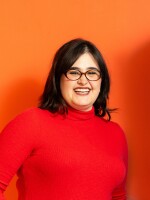The UNT Health Science Center in Fort Worth is leading a statewide project to fight misinformation about COVID-19 and build trust in the medical community, especially among the people most vulnerable to the disease.
COVID-19 has killed more than 15,000 Texans, and people of color are at greater risk than others, said Dr. Jamboor Vishwanatha, the head of the new project and the director of the Texas Center for Health Disparities.
"There are more African American and Latinx persons who are not only getting infected, but also if you start looking at mortality, the death rate has been high," Vishwanatha said.
People of color are overrepresented among workers in essential jobs who can’t work from home, so their risk of exposure to the coronavirus is higher. If people of color do get sick, existing inequities, like the lack of access to healthcare, put them at greater risk of death.
UNTHSC's project will try to make sure people in Tarrant, Bexar, Dallas, Harris and Hidalgo counties are getting accurate public health information to stay safe during the pandemic.
Vishwanatha said UNTHSC is partnering with local organizations to help spread the word and build trust in medical professionals. In Tarrant County, the medical center will work with the United Way, which could potentially bring in community groups to share health information that those groups can then spread on social media.
Another goal is to encourage people of color to participate in COVID-19 vaccine trials.
That could require the project to counter longstanding mistrust. Studies have shown that Black Americans in particular often have reservations about the healthcare system, in part because of medical experimentation and abuse throughout history.
Vishwanatha said these vaccine trials are part of a safe, rigorous scientific process, and to be a success, they need a diverse set of participants.
“When any vaccine is developed, we want to make sure that the racial and ethnic groups are all included so that we know for sure that it is effective in all of the communities,” he said.
It’s also important to spread the word that the eventual vaccine will be safe and effective once it is released, Vishwanatha said. He pointed to a recent Pew Research Center survey that found only about half of American adults would definitely or probably get vaccinated if a vaccine was available today.
“Concerns about side effects and uncertainty around the effectiveness of a vaccine are widely cited as reasons,” the survey states.
Respondents also said they worried a vaccine would be pushed through federal approval before it is deemed fully safe and effective. Nine drugmakers recently signed a pledge vowing to prove their vaccines are safe in large clinical trials before submitting them to the Food and Drug Administration for review. The FDA reportedly plans to tighten its standards for approving a vaccine, in an effort to boost public trust.
That trust is important, Vishwanatha said, because if not enough people take the vaccine, it won't help.
“Basically, it’ll still be going around, and that’s not going to help the pandemic to stop,” he said.
Got a tip? Email Miranda Suarez at msuarez@kera.org. You can follow Miranda on Twitter @MirandaRSuarez.
KERA News is made possible through the generosity of our members. If you find this reporting valuable, consider making a tax-deductible gift today. Thank you.


